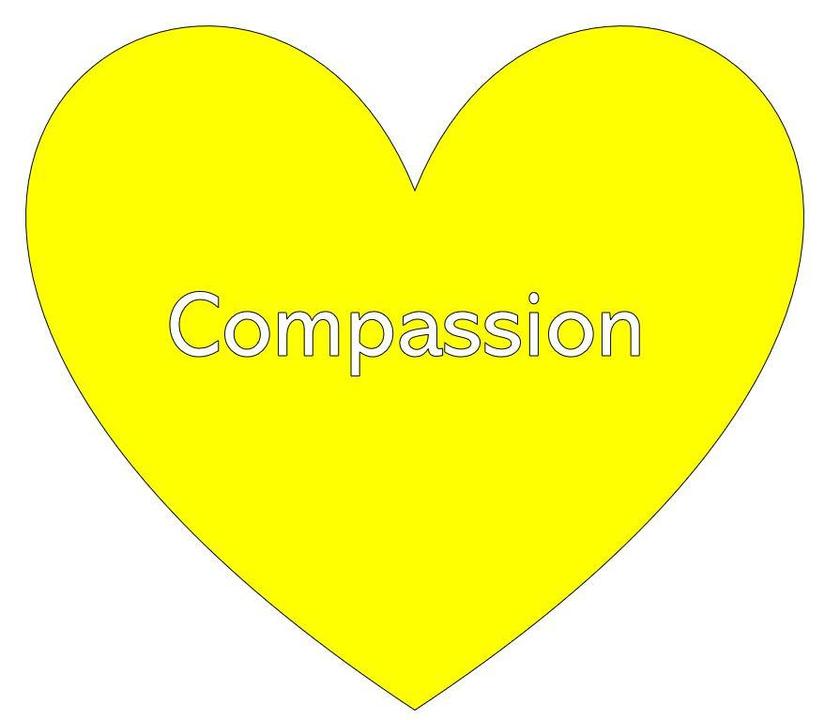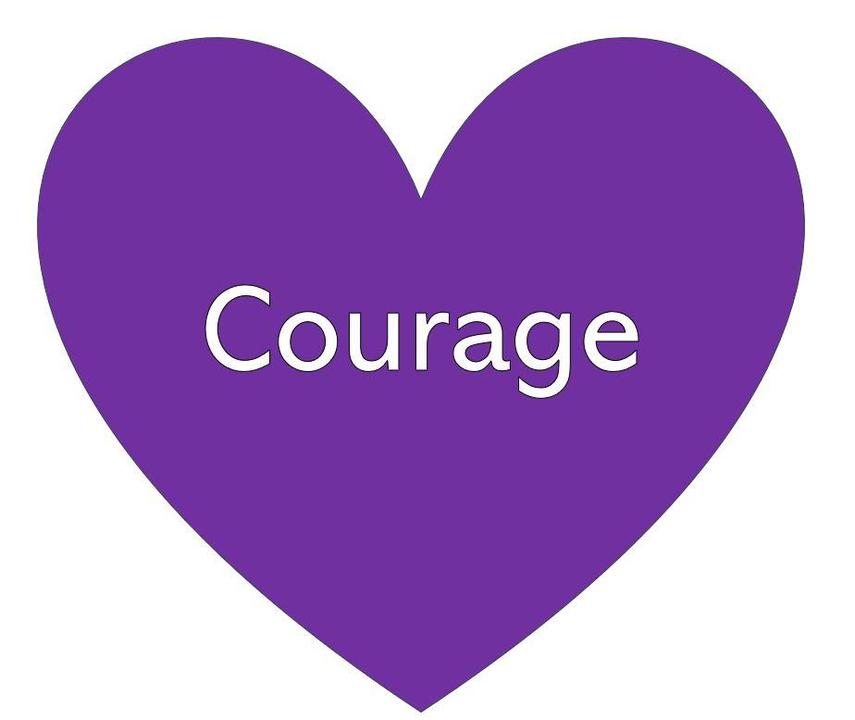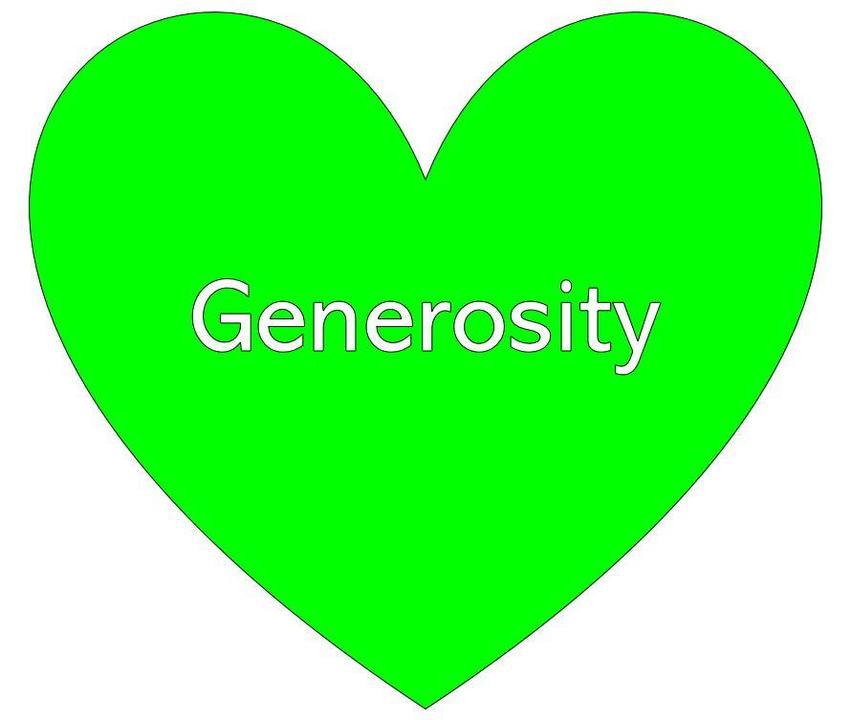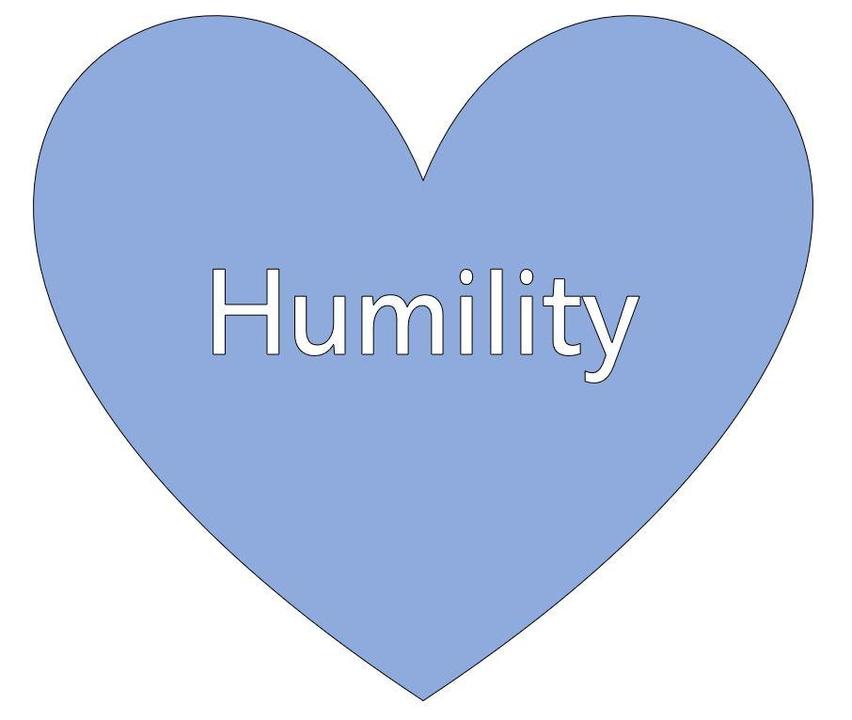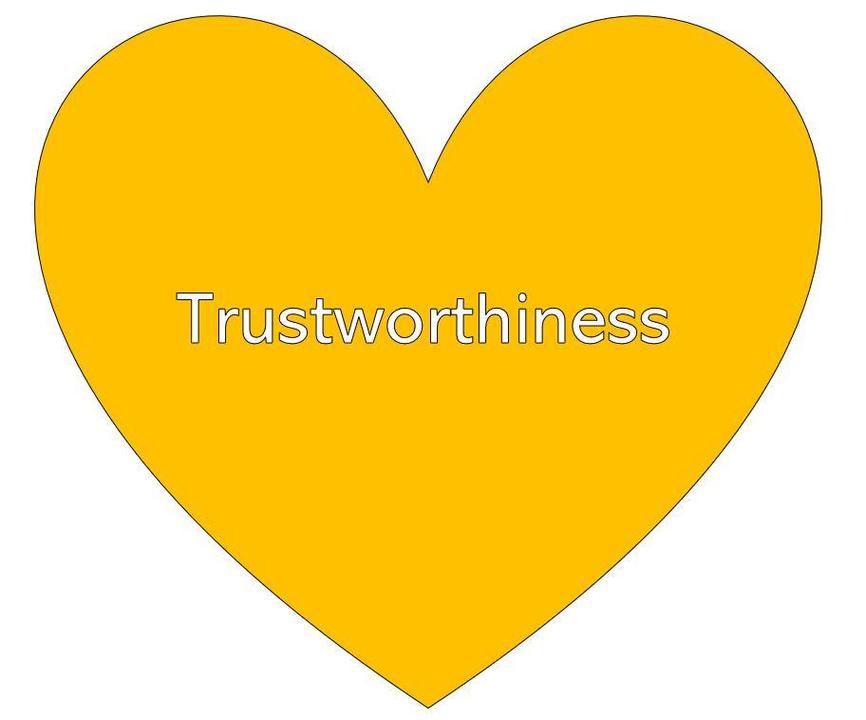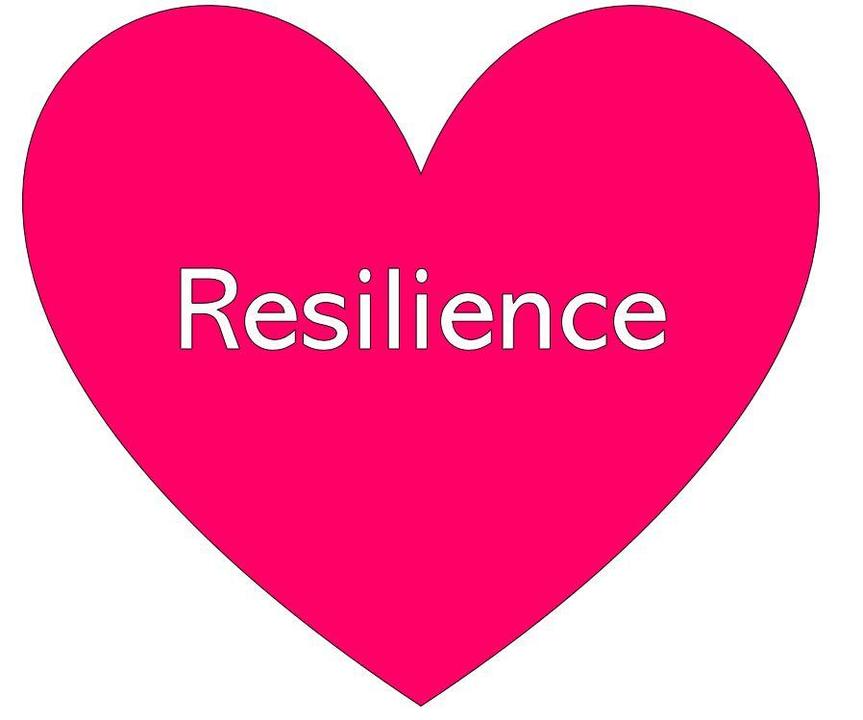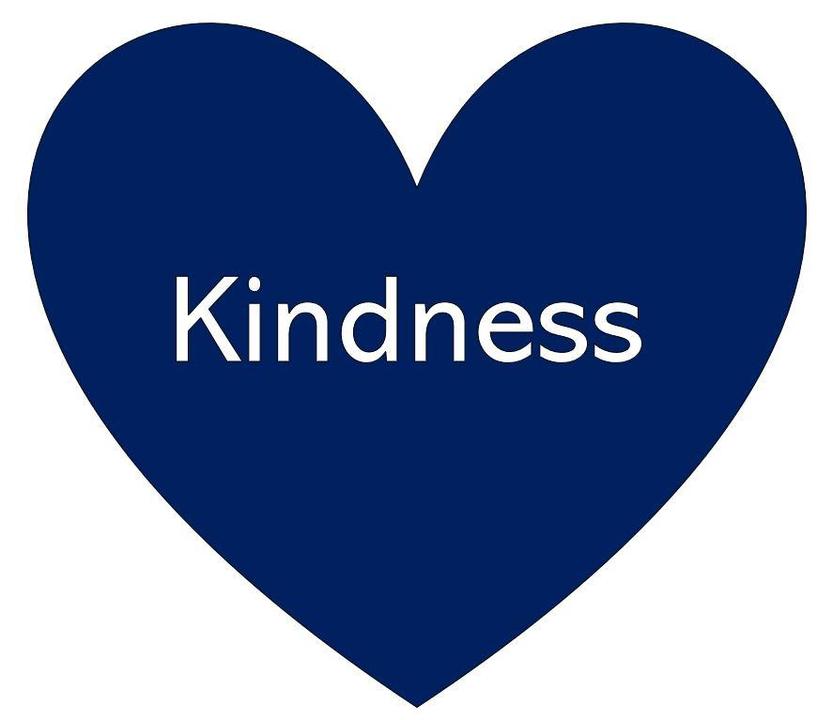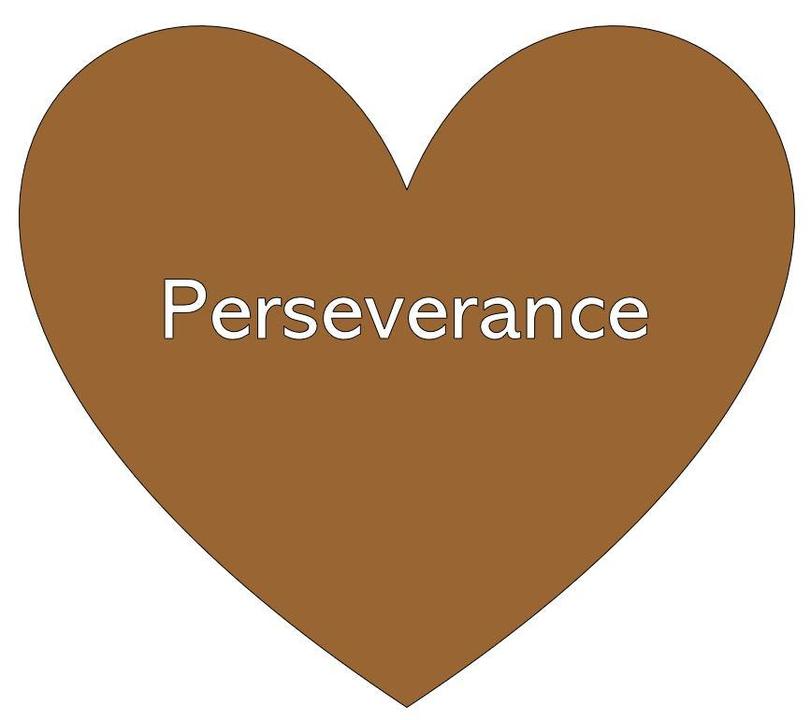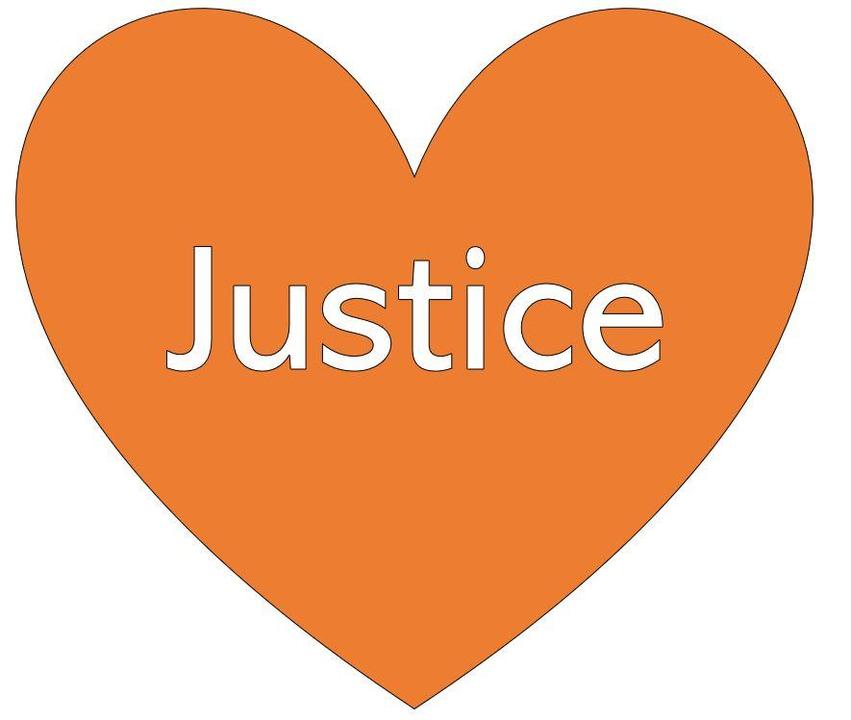Our Virtues
Our Catholic Virtues
“I have come that they may have life and have it to the full.” (John 10:10)
|
|
|
|
|
|
|
|
|
|
|
|
|
|
As a Catholic school, we try our best to learn more about the teachings of the Gospel and take guidance from God to lead us in our daily lives. We believe that with God by our side we can be the best version of ourselves and follow in Jesus' footsteps to make a difference in our world. Each month we focus on a virtue and consider how we can show this through our words and actions.
Excellence in all aspects of life is pursued when we repeatedly perform particular virtues that build our character so that we become what we repeatedly do. To celebrate pupils who develop in their character each month we nominate one pupil from each class to receive our Virtue 'Bee' Award.
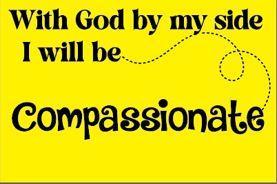
When you notice that a person is sad, in distress or in trouble, you care about how they are feeling and you want to help them.
"When he saw the crowds, he had compassion on them, because they were harassed and helpless, like a sheep without a shepherd. Then he said to his disciples, "The harvest is plentiful but the workers are few. Ask the Lord of the harvest, therefore, to send out workers into his harvest field." (Matthew 9:36-38)

You give someone another chance after they have done something wrong so they can make a new start. You let go of your sadness, anger and revenge. You show your love for the person rather than focusing on the wrong. When you forgive someone you show that your relationship with them is more important than the wrong they have done. You also forgive yourself so that you do not give up when you have done wrong or made a mistake, but have the courage to act differently and have faith that, with God's help, you can change.
"Then Peter came to Jesus and asked, 'Lord, how many times shall I forgive my brother or sister who sins against me? Up to seven times?"
Jesus answered, "I tell you, not seven times, but seventy seven times." (Matthew 18:21-22)

You give what you have by sharing it with others or helping someone who is in need. You give and you do not expect a gift in return or any attention, praise or reward for giving and you do it cheerfully. To share what you have teaches you not to be selfish. Generosity helps you to treat other people as your neighbour. You are not afraid of losing what you give. You are generous because you know there is enough room for everyone.
" Freely you have received, freely give." (Matthew 10:8)

You give people what is due to them: you give them their fair share. When you are just you seek to be fair in everything that you do. Treating people justly means treating people with dignity and not treating them as less than you are or using them for selfish ends. It is JUST to speak out against anyone who treats you unfairly and it is JUST to act to support those who are treated unfairly.
"Blessed are those who do what is right, who always do what is just". (Psalm 105:3)

You can relied upon by others. You will keep your word and if you have committed to something you will do your best to see it through and complete it: you are reliable and determined.
" The Lord delights in people who are trustworthy". (Proverbs 11:13)

You are truthful with yourself and with others. You tell the truth without exaggerating what you say or without sometimes saying less than you know to be true. even when admitting the truth may be hard to do. You are reliable because you keep the promises you make. You have integrity, your words match your actions and you do not try to be like someone you are not: you are your true self.
" Dear children, let us not love with words or speech but with actions and in truth". John 3:18

You think about other people, how they feel, and with tenderness you perform an act of care that brings happiness, relief or comfort. You decide to do something good to help someone else, because you know it is the right thing to do.
"Never neglect to show kindness and to share what you have with others; for such are the sacrifices which God approves".
(Hebrew 13:16)

You acknowledge both your strengths and weaknesses, yet not thinking that you are better than others because of them. You understand that everything you have is a gift and you are grateful for the blessings in your life. You are aware of your place in the world and treat others with kindness and respect. You understand and value everyone and treat others with respect, regardless of their position or status.
"Be completely humble and gentle; be patient, bearing with one another in love". (Ephesians 4:2)
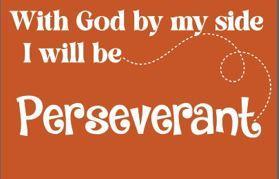
You work towards a goal even if there is a delay in getting it, or a difficulty in achieving it. You set a goal for yourself and you work hard for it. Whether you make the team or not, you persevere and you try your best. Sometimes we work hard and don’t meet our goals, but knowing we did the best we could do gives us a sense of pride and self confidence. If you had quit, not only would you definitely not have made the team, but you wouldn't even have had the satisfaction of knowing you tried your hardest. Instead of feeling the pride of having done your best, you would have felt the emptiness of not even trying.
"And let us not grow weary of doing good, for in due season we will reap, if we do not give up." (Galatians 6:9)
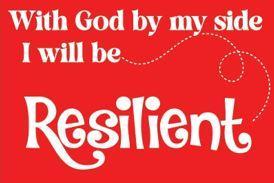
You develop your resilience over time. You develop in your ability to bounce back after challenges and tough times. You understand that you will face setbacks and challenges but you learn to deal with these positively.
“The Lord makes firm the steps of the one who delights in him; though he may stumble, he will not fall, for the Lord upholds him with his hand” (Psalm 37:23–24).
As Catholics we desire to follow the teachings of the Gospel revealed through the Church. We look to scripture for revelation from God which will guide us in the way he wants us to live. In the Gospels and our Church tradition we find the person of Jesus, through his teachings and interactions with people, showing us the way to live our lives.
- willingness to have a go
- demonstrating an inner confidence about self and what is important
- having confidence to do something challenging
- facing a fear or phobia
- not being afraid to make mistakes, and seeing mistakes as a way of learning
- showing resilience - bouncing back after making a mistake
- standing firm by one’s own faith, beliefs or courage of conviction
- choosing to stand up for others, even if it makes you unpopular
- being able to make up your own mind and not be swayed by pressure from others/ peer-pressure
- refusing to be involved in bullying

